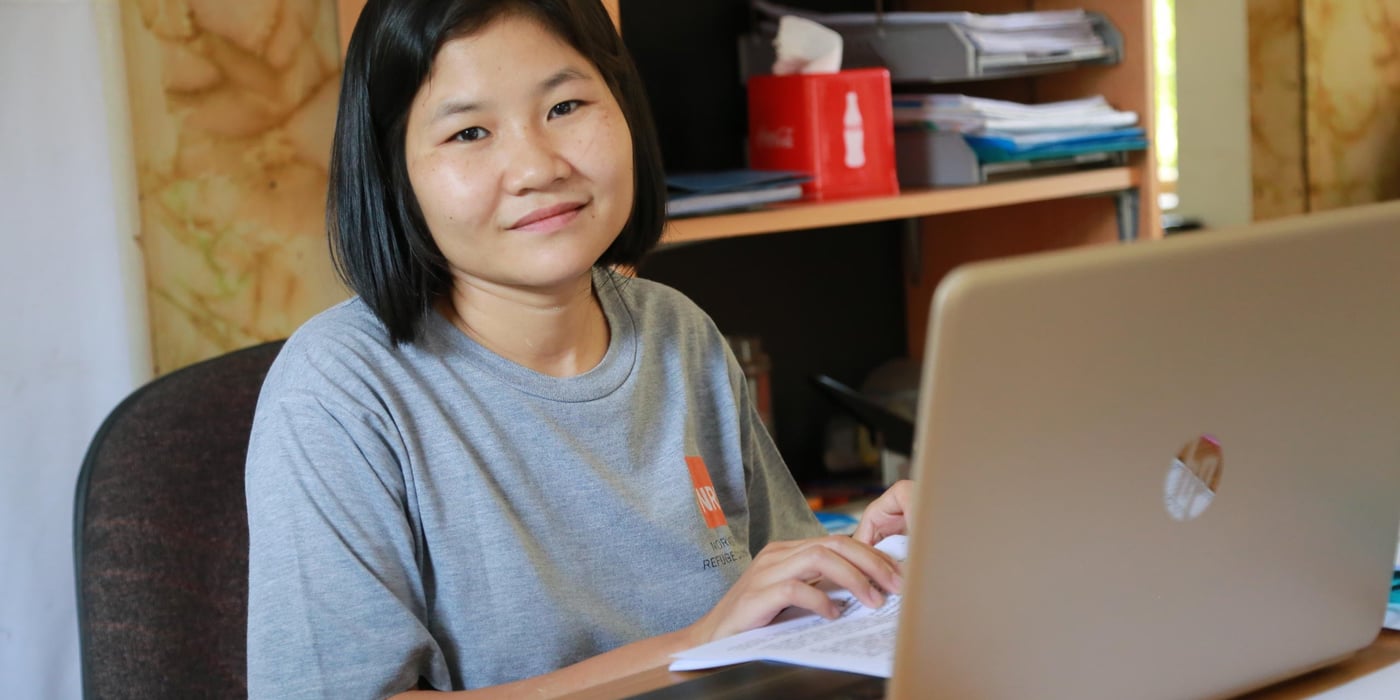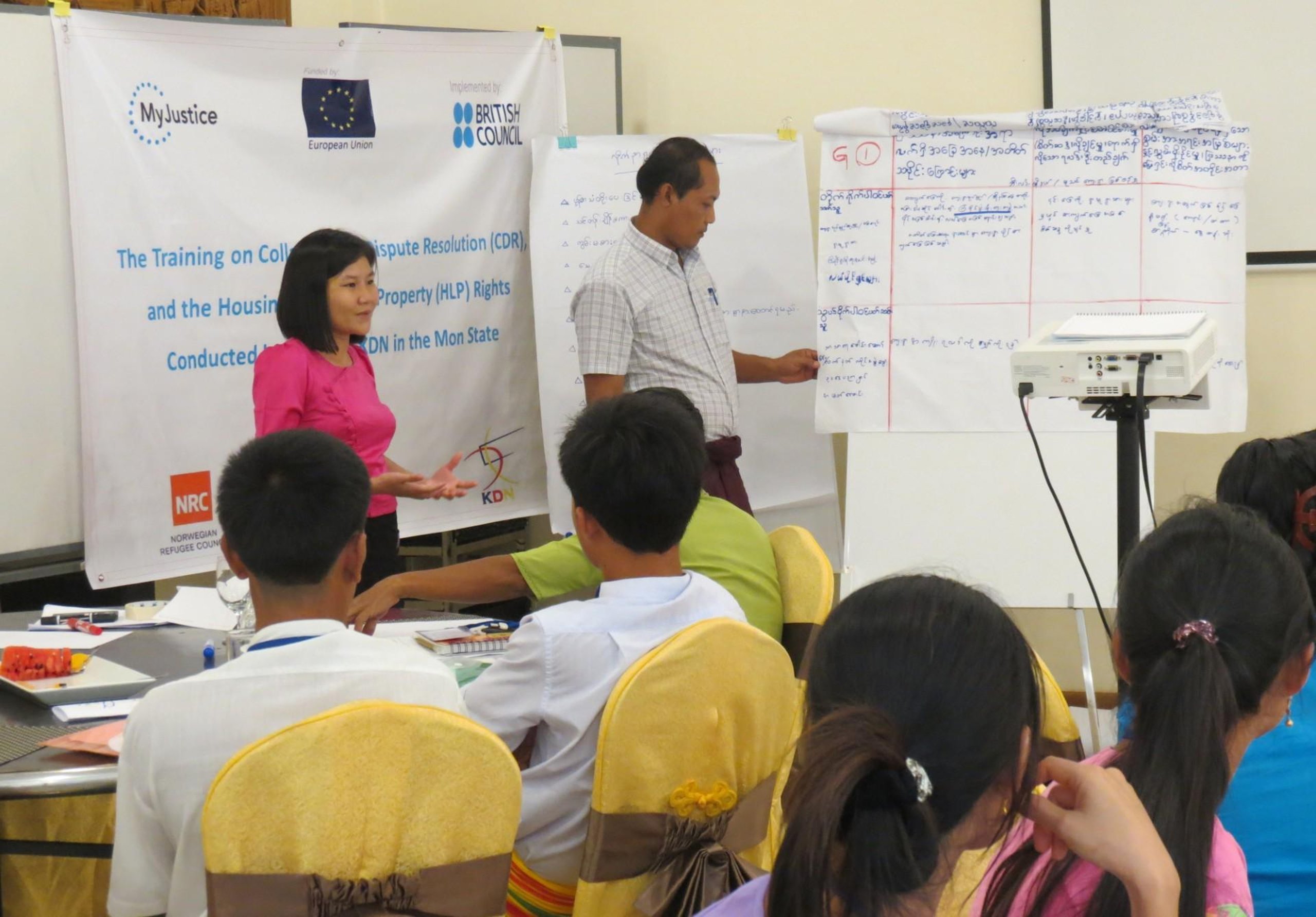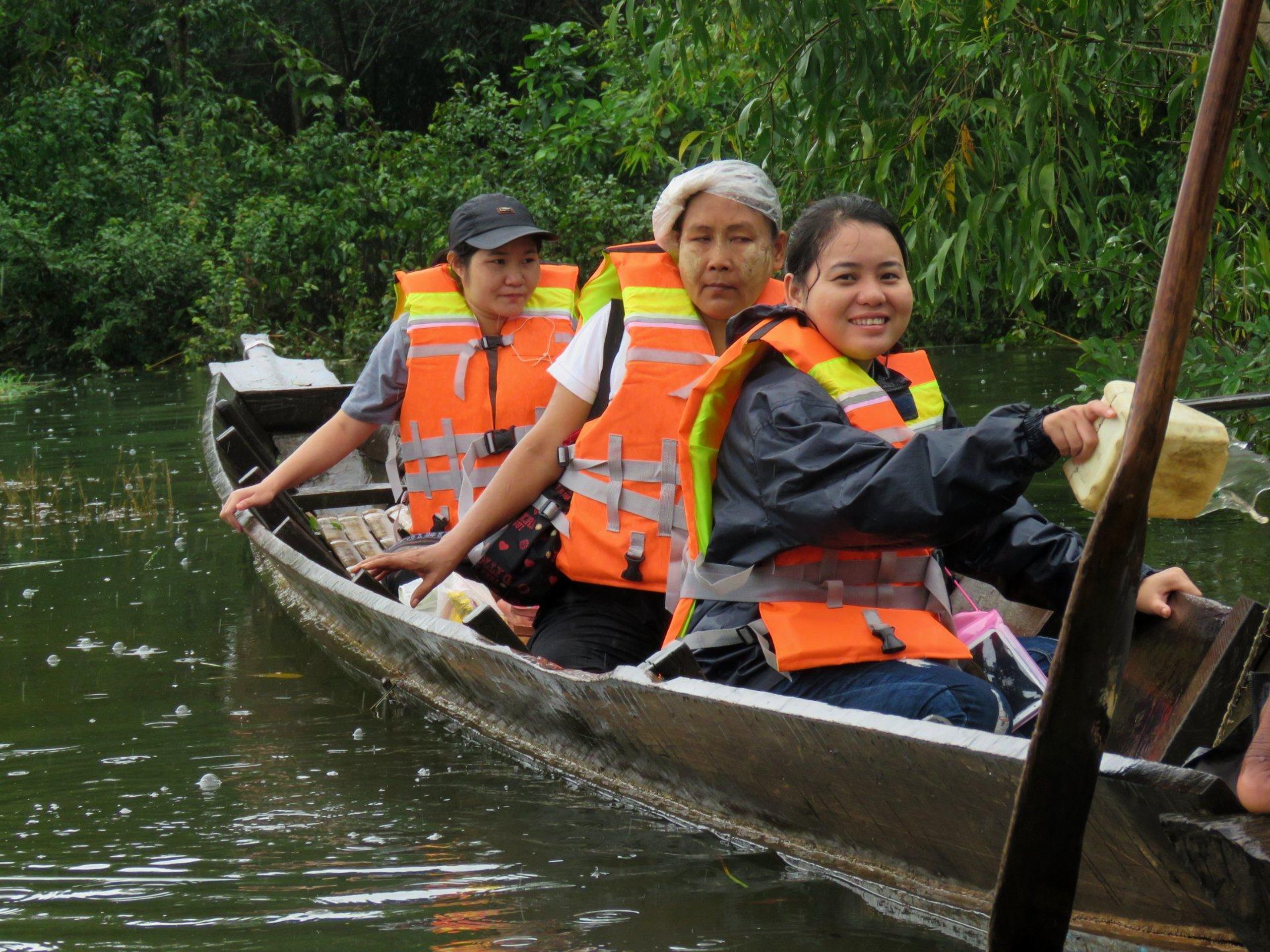
Naw Khin Thu
Information, counselling and legal assistance Team Leader - Myanmar
Naw is 32 years old and was born in Myanmar. She fled the country at the age of 14 and lived for six years in a refugee camp in Thailand.
After working in Thailand for a local NGO, Naw joined NRC Myanmar in 2015 to help returning refugees - like herself - regain their citizenship rights.
At NRC, Naw developed new competences, confidence and attitudes. She was promoted to Information, counselling and legal assistance (ICLA) Team Leader in 2018.
Forced to flee
I was born in Myanmar but, due to the civil war, we left for Thailand when I was 14 years old. I then lived for six years in a Thai refugee camp.
I obtained a community development diploma in 2009. Unfortunately, I had no opportunity to pursue higher-level studies because the educational certificates issued by Thai refugee camps are not officially recognised by the Thai or Myanmar governments.
I started working in Thailand for a local NGO on migrant women's rights and studied English online.
Joining NRC
I joined NRC in 2015 as a field officer for ICLA. This gave me the opportunity to come back to Myanmar and work for the people, through direct contact with local communities all over the country.
Myanmar has suffered civil war for the last 70 years. The various conflicts have forced many people to flee into the neighbouring country, Thailand, or more recently into Bangladesh. Throughout this period, many properties have been re-appropriated.
Myanmar's unclear administrative systems and laws do not work in favour of returning refugees. So, we help individuals regain their citizenship rights. For example, we help people to get Citizen Scrutiny Cards, and provide legal awareness sessions on land rights and registration of property documents.

NRC covers Myanmar's conflict-affected areas. We go to remote villages, to areas under mixed control, and to hard-to-reach areas where locals have no access to administrative services.
A positive attitude
NRC is a very friendly workplace, and very international, with equal rights and equal chances for all. NRC offers true opportunities to learn, grow, and share with highly competent people. The culture is very open. Everybody can contribute.
Since working at NRC, I have developed a positive attitude. I have realised that understanding is the key to meeting the diversity of people, backgrounds and situations that we encounter. I feel more confident in applying my knowledge and skills too.
In 2017, I attended training sessions on several topics, including housing, land and property rights, legal identity, and collaborative dispute resolution.
In 2018, I became ICLA Team Leader. I am learning how to deal with the different feelings and perspectives of my team members, and how to work with colleagues and different stakeholders. I have received very positive feedback, and sense that I can work and manage at a higher level in NRC's ICLA programme.

PS: Any advice for candidates?
Keep in mind that NRC is a place where you will work from the heart as well as the head, especially when meeting people living in delicate contexts.

